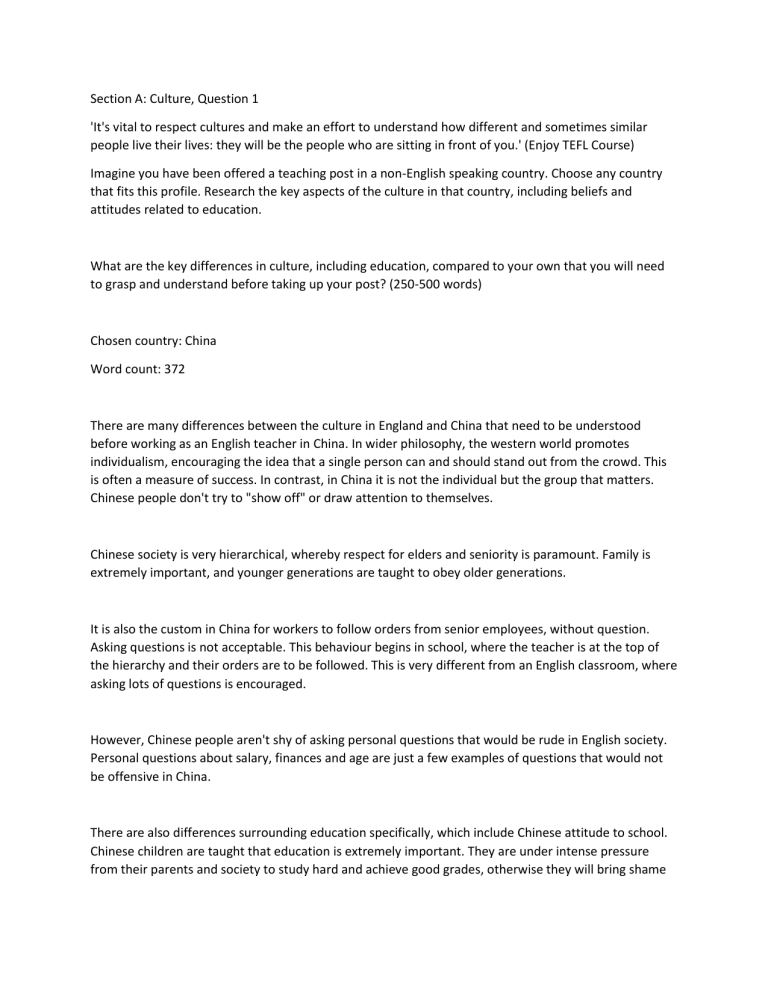
Section A: Culture, Question 1 'It's vital to respect cultures and make an effort to understand how different and sometimes similar people live their lives: they will be the people who are sitting in front of you.' (Enjoy TEFL Course) Imagine you have been offered a teaching post in a non-English speaking country. Choose any country that fits this profile. Research the key aspects of the culture in that country, including beliefs and attitudes related to education. What are the key differences in culture, including education, compared to your own that you will need to grasp and understand before taking up your post? (250-500 words) Chosen country: China Word count: 372 There are many differences between the culture in England and China that need to be understood before working as an English teacher in China. In wider philosophy, the western world promotes individualism, encouraging the idea that a single person can and should stand out from the crowd. This is often a measure of success. In contrast, in China it is not the individual but the group that matters. Chinese people don't try to "show off" or draw attention to themselves. Chinese society is very hierarchical, whereby respect for elders and seniority is paramount. Family is extremely important, and younger generations are taught to obey older generations. It is also the custom in China for workers to follow orders from senior employees, without question. Asking questions is not acceptable. This behaviour begins in school, where the teacher is at the top of the hierarchy and their orders are to be followed. This is very different from an English classroom, where asking lots of questions is encouraged. However, Chinese people aren't shy of asking personal questions that would be rude in English society. Personal questions about salary, finances and age are just a few examples of questions that would not be offensive in China. There are also differences surrounding education specifically, which include Chinese attitude to school. Chinese children are taught that education is extremely important. They are under intense pressure from their parents and society to study hard and achieve good grades, otherwise they will bring shame to themselves and their families. In England, studying and success in exams is encouraged but far more laid-back. More practically, it's important for foreign teachers to be aware of the technological restrictions in China. Many websites that could otherwise be used as teaching aids, such as YouTube, are inaccessible. It's also vital for teachers of English to be aware that some sounds in English aren't present in Chinese. Consequently, some native Chinese speakers learning English as a second language struggle to pronounce certain words including the [ð], the [r], or some specific final consonants in words. This is also true of various grammatical concepts, plural forms, tenses and intonation. Cultural sensitivity is required at all times to ensure that all students are treated fairly and respectfully!



